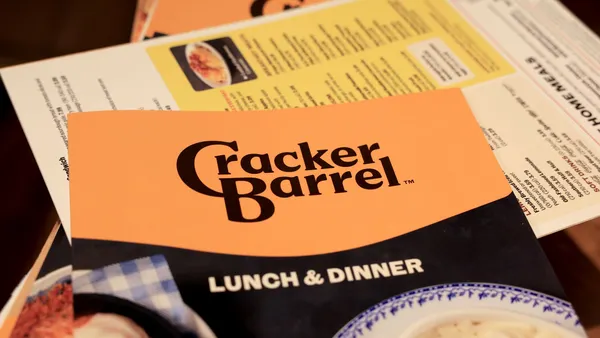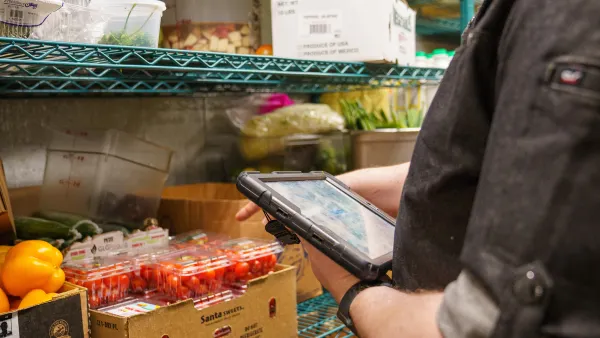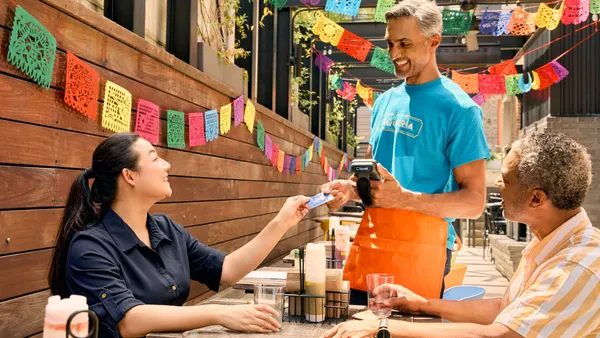Dive Brief:
- Restaurant Brands International, parent company of Burger King, Popeyes and Tim Hortons, plans to grow to more than 40,000 global locations by 2029, according to a company announcement Wednesday ahead of its first investor day. This would boost its current store count of 25,809 by 55%, and surpass McDonald's current footprint of nearly 38,000 restaurants.
- Last year, RBI launched 1,300 new stores across its three restaurant brands, which translates to a new store every seven hours, according to CNBC.
- RBI did not disclose whether or not the new stores will be distributed equally between its brands. Currently, Burger King has more than triple the store count of Tim Hortons at 17,823 locations, and Popeyes has only 3,120 restaurants in its portfolio.
Dive Insight:
This expansion would make RBI one of the biggest restaurant companies in the world, and while it's still only nipping at McDonald's heels, the move could shake up the balance of power between major QSRs.
Burger King has been pretty blatantly targeting the Golden Arches in recent marketing campaigns, including its "Whopper Detour" initiative, which used mobile geofencing to reward users of its revamped mobile app with a one-cent burger when they came within 600 feet of a McDonald's restaurant. The smaller chain also jabbed at McDonald's signature Happy Meals with the debut of its "Real Meals" line, which encourages consumers to embrace their feelings by choosing from a variety of different "moods," including the Pissed Meal, Blue Meal and DGAF Meal.
And while these marketing blitzes have made light of Burger King's rivalry with McDonald's, RBI's expansion plans make it clear that the fast food giant is in its cross hairs. But it seems unlikely that the chain will be able to catch up with the larger QSR — McDonald's boasts average unit volumes of around $2.7 million, while Burger King only rakes in about $1.4 million.
Still, the chain has found powerful ways to differentiate. Late last month, Burger King announced it would roll out the vegan Impossible Burger patty nationwide by the end of this year following a successful pilot in St. Louis, making it Impossible Foods' largest restaurant partner. With 59% of U.S. diners eating vegan meals once per day, this deal could help Burger King dominate the plant-based sales of competitors including Carl's Jr and White Castle. McDonald's has yet to enter the plant-based burger fray in the U.S., despite customer pressure, and if it continues to watch from the sidelines, Burger King could gain a sizable lead.
Zak Weston, foodservice analyst at the Good Food Institute, told the Chicago Tribune that he would be shocked if "they don't have something on the menu in the next 18 months." And while the launch of a plant-based burger from McDonald's would certainly be a major blow to Burger King, Impossible Food's current shortage — and the risk of future shortages at Beyond Meat — could keep the chain from playing ball for a while longer.
Regardless of whether or not plant-based dominance continues to be a focus for RBI, which just announced today that Tim Hortons will be testing Beyond Sausage, scaling beyond the equivalent of McDonald's footprint in just 10 years will sharpen its competitive edge — and could spark more aggressive expansion from its rivals.












